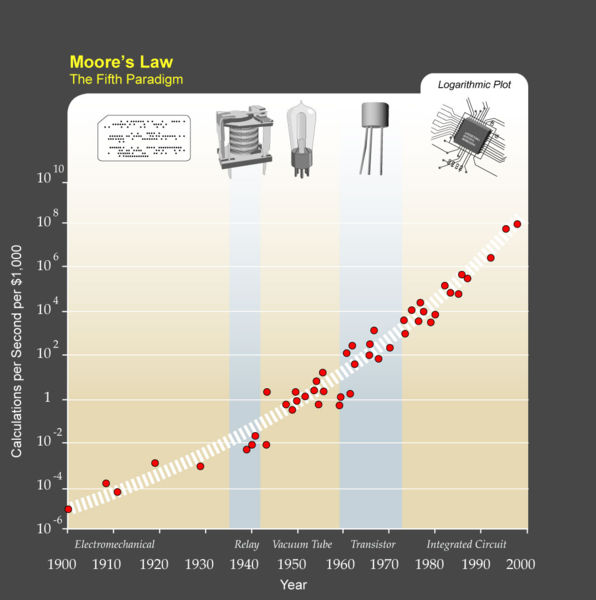No, singularity means something very specific (and not at all what you said). It represents the point in time where a single computer is more intelligent than a human.
I was not aware that a theoretical version of "the singularity" was made more popular than the factual one proposed by Ray Kurzweil... Which is all based on the very scientific and factual Moore's law.
We cannot,
likely ever, say that a single computer is more intelligent than a human. We can say that a computer has become so powerful that it can make more calculations per second or whatever than a human does.
When we have such a concentration of transistors, surely in a few short years from now following Moore's law, then we'll have a singularity of sorts... But what will it mean to us really?
We won't all need a computer that fast... Lately the trend has actually been for consumers to get LESS powerful hardware like carrying a smartphone or using an ipad... We fill needs with the proper-sized brains now, although we'd like that hardware to be as small as possible.
The singularity will pack so many transistors into such a small space that the thin-framed prescription glasses on my face right now will be able to store an ipad's brain easily. Perhaps my whole i7-2600 computer's CPU and ram as well, all without a bulge...
Making computers ubiquitous to us, which is my description. That's clearly how the singularity will manifest itself to us.
-It will not require nor enable shared knowledge... But watching web video without anyone standing near you even knowing that you're doing so, is one of the most effective tools for educating the masses about taboo concepts like anarchy that we could ever hope for.
The singularity will surely deliver us from governments, but it'll still take time for people to absorb the truth.
-And then only if uncle sam hasn't completely tightened down the net by then. :censure:



